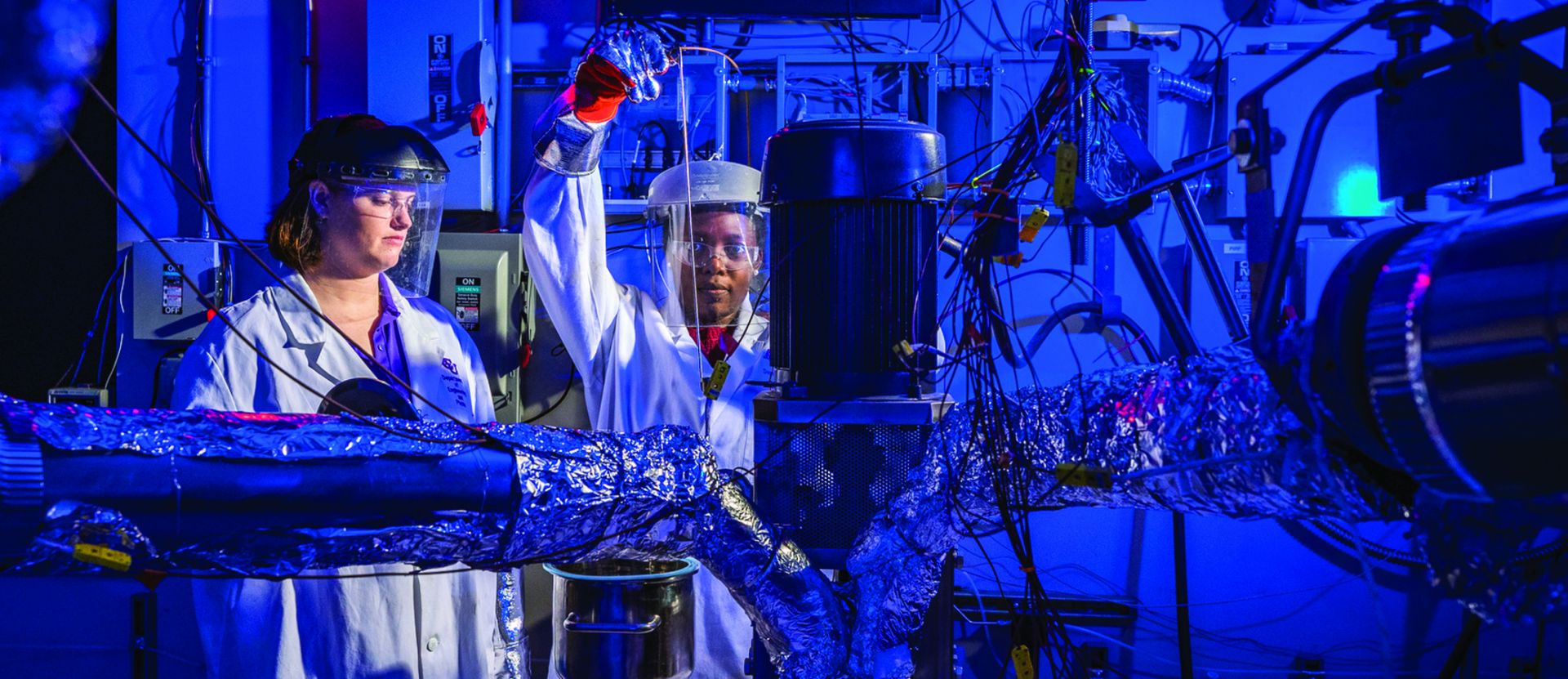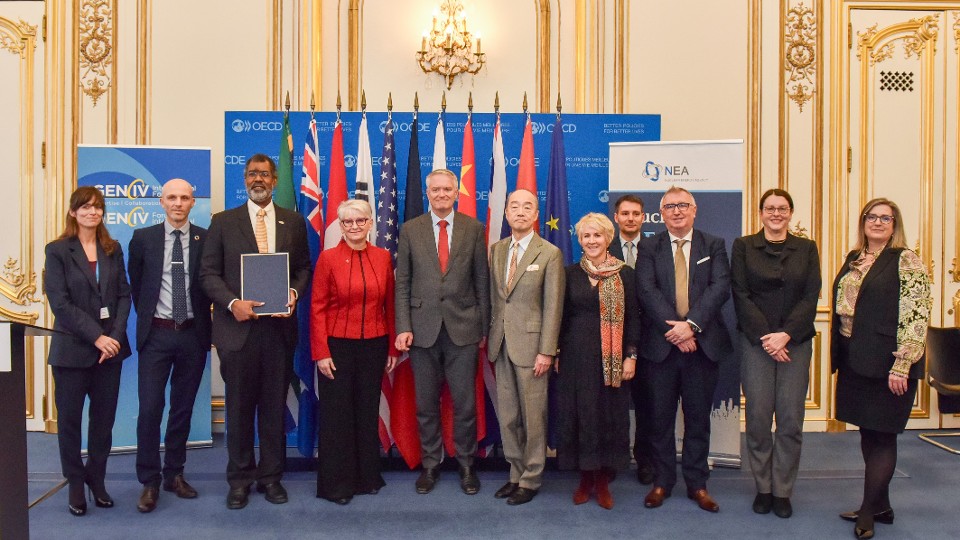Research engineers take a sample of molten salt for the NEXT Lab. (Photo: Jeremy Enlow/Steelshutter)
The American Nuclear Society’s Chicago–Great Lakes Local Section hosted a presentation on February 27 on developments at the molten salt research reactor at Abilene Christian University’s Nuclear Energy Experimental Testing (NEXT) Lab.
A recording of the presentation is available on the ANS website.
William D. Magwood IV, director general of the OCED NEA, holds the framework agreement for the Generation IV International Forum. Magwood is joined by others who attended the agreement’s signing ceremony. (Photo: OECD NEA)
A conceptual rendering showing a section view of the molten salt research reactor along with supporting systems and a simulator room for training students at Abilene Christian University. (Image: ACU)
Natura Resources of Abilene, Texas, has awarded a contract to Zachry Nuclear Engineering, which has offices in Connecticut and North Carolina, to complete the engineering and design of Natura's 1-MWt molten salt reactor (MSR). The agreement also provides terms under which Zachry may execute the engineering, procurement, and construction phase of the project. The dollar amount of the contract was not disclosed.
MCRE could be built inside the ZPPR cell (shown here) at INL’s Materials and Fuels Complex. (Photo: INL)
A tiny 200-kWt reactor the Department of Energy says would be the first critical fast-spectrum circulating fuel reactor and the first fast-spectrum molten salt reactor (MSR) could be built and operated inside the Zero Power Physics Reactor (ZPPR) cell at Idaho National Laboratory’s Materials and Fuels Center (MFC). Details included in the Molten Chloride Reactor Experiment (MCRE) draft environmental assessment (EA)—released on March 16 for two weeks of public comment (later extended to four weeks, through April 14)—covered the potential environmental impacts associated with the development, construction, operation, and decommissioning of MCRE at INL, facilitated by the National Reactor Innovation Center (NRIC).
The Integrated Effects Test at TerraPower’s laboratory in Everett, Wash. (Photo: Southern Company/TerraPower)
“The world's largest chloride salt system developed by the nuclear sector” is now ready for operation in TerraPower’s Everett, Wash., laboratories. Southern Company, which is working with TerraPower through its subsidiary Southern Company Services to develop molten chloride reactor technology, announced on October 18 that the Integrated Effects Test (IET) was complete. The multiloop, nonnuclear test infrastructure follows years of separate effects testing using isolated test loops, and it was built to support the operation of the Molten Chloride Reactor Experiment (MCRE) at Idaho National Laboratory that the companies expect will, in turn, support a demonstration-scale Molten Chloride Fast Reactor (MCFR).
The EBR-II sodium fast reactor at Idaho National Laboratory began operations in 1964 and generated electricity for decades. Soon it will serve as a National Reactor Innovation Center test bed for future advanced reactor demonstrations. (Source: ANL)
At the box office or streaming at home, it’s fear, not truth, that sells. The laws of physics are swept aside, apocalypse is inevitable, and superpowered heroes wait until the last possible second to save the universe. It can make for great entertainment, but in the real world we need to stick with science over science fiction and be wowed by engineering, not special effects.
The truth is, science and innovation are incredible in their own right. From communications and machine learning to space travel and medical advances, technology is evolving in hyperdrive to solve real problems. With climate change and global warming here on earth, we don’t have to go looking for trouble in a galaxy far, far away.







